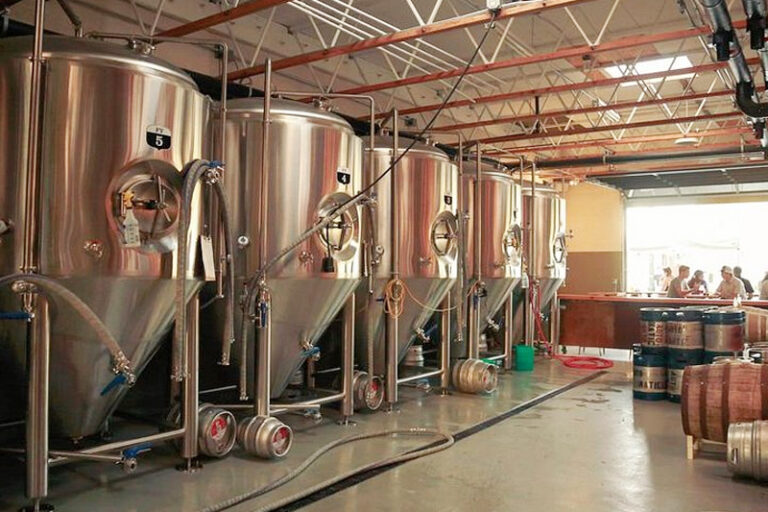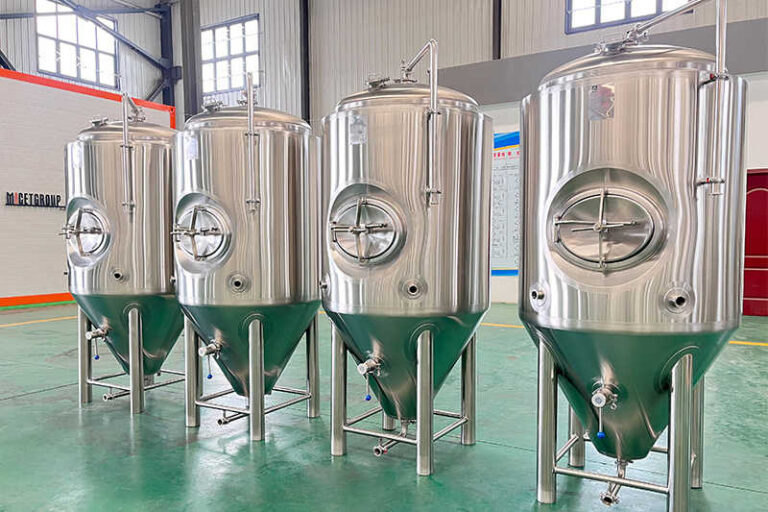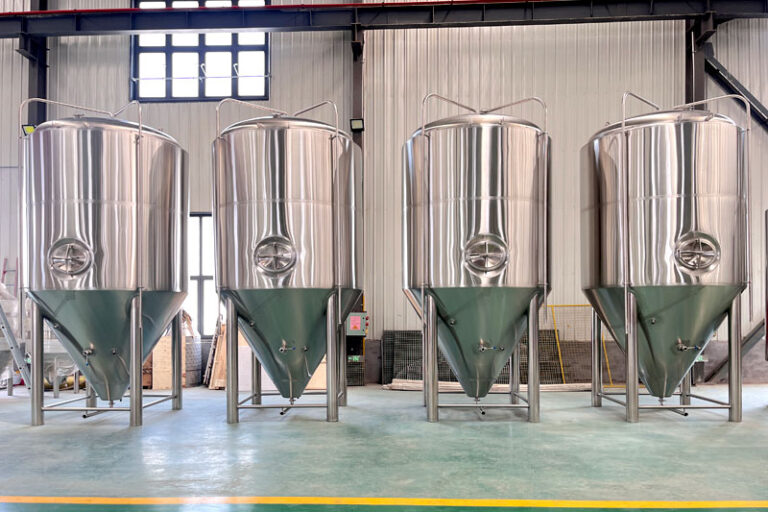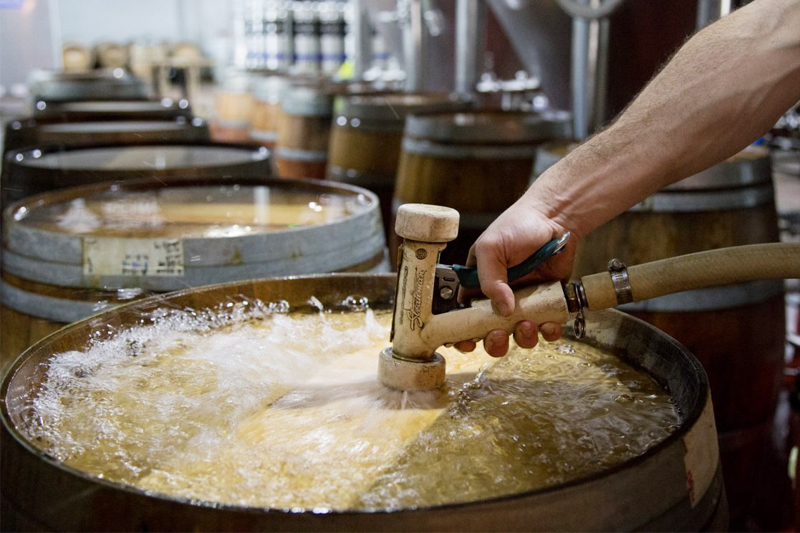Beer is a beverage with a long history and is loved by people all over the world. Fermentation is a crucial step in the production of beer. Fermentation not only affects the flavor and aroma of beer but is also directly related to its taste, color, and alcohol concentration. Therefore, controlling the fermentation process is one of the key factors in brewing high-quality beer. This article will explore the importance of controlling beer fermentation, including factors that affect fermentation, monitoring the fermentation process, and how to improve the quality of fermentation through scientific methods.
Table of Contents
What is beer fermentation?
Fermentation refers to the process of converting sugar into alcohol and carbon dioxide under the action of microorganisms. In beer brewing, the activity of yeast is mainly involved. Yeast will metabolize the sugar released from malt to produce alcohol, carbon dioxide, and a variety of flavor compounds. Fermentation can be divided into primary fermentation and secondary fermentation. In primary fermentation, the main function of yeast is to produce alcohol and carbon dioxide; while in secondary fermentation, it is to further improve the taste and aroma of beer.

Factors affecting fermentation
- Temperature: Fermentation temperature is a key factor affecting yeast activity and fermentation speed. If the temperature is too high, the yeast will be overactive, which will produce too many by-products, such as alcohols, acids, etc., which will affect the flavor of the beer; while if the temperature is too low, the activity of the yeast will be inhibited, resulting in incomplete fermentation. Therefore, controlling the appropriate fermentation temperature is an important measure to ensure beer quality.
- Yeast types: Different types of yeast also have significant effects on fermentation. For example, lager yeast and ale yeast produce very different flavors and aromas during fermentation. Choosing the right yeast species not only controls the speed of the fermentation process but also significantly affects the flavor profile of the final product.
- Alcohol concentration: During the fermentation process, as the alcohol concentration increases, the activity of the yeast will gradually decrease. In some cases, too high an alcohol concentration may inhibit the normal reproduction of yeast, resulting in incomplete fermentation. Therefore, for beers with high alcohol content, you need to pay more attention to the production of alcohol during the fermentation process.
- Type of sugar source: Different sugar sources will also affect the activity and metabolites of yeast. For example, the conversion rates of monosaccharides, disaccharides, and complex sugars vary, and these sugar sources can affect the speed of fermentation and the complexity of flavor. Choosing an appropriate sugar source can promote healthy fermentation of yeast, thus improving the overall quality of beer.
- Influence of oxygen: In the early stages of fermentation, an appropriate amount of oxygen is beneficial to the growth and reproduction of yeast. However, in the middle and late stages of fermentation, excessive exposure to oxygen will cause oxidation reactions and affect the flavor stability of beer. Therefore, controlling oxygen levels during fermentation is crucial.
Monitoring of the fermentation process
To ensure high-quality beer, monitoring of the fermentation process is essential. This includes real-time monitoring of parameters such as temperature, alcohol content, CO2 content, and pH value.
- Temperature monitoring: Use temperature sensors to monitor the temperature in the fermentation barrel in real time to ensure that it is within the optimal range. This can be achieved through an automated system to ensure that the temperature can be adjusted quickly to prevent quality fluctuations caused by temperature fluctuations.
- Measurement of alcohol and CO2: Use specialized instruments to regularly measure the alcohol concentration and carbon dioxide production in the fermentation liquid. These data can help brewers determine whether fermentation is going smoothly and whether adjustments are needed.
- pH monitoring: pH has an important impact on the activity and flavor of yeast. By frequently testing pH, brewers can adjust the recipe or process according to changes to ensure the taste and stability of the final product.
- Evaluation of smell and taste: In addition to monitoring scientific parameters, the experience and sensory evaluation of brewers are also very important. During the fermentation process, regularly tasting the beer and observing its flavor changes can immediately detect problems and make adjustments.

How to improve fermentation quality
- Optimize yeast types: Switching to yeast varieties that are more suitable for the target flavor can effectively improve fermentation quality. With the advancement of technology, more and more specialized yeast varieties have emerged, which can be selected according to the needs of different flavors.
- Adjust fermentation conditions: According to monitoring data, flexibly adjust the fermentation temperature and sugar source supply to optimize the activity of yeast. For example, raising the temperature in the early stage of fermentation will help yeast reproduction; while in the later stage, the temperature can be moderately lowered to slow down the fermentation speed to avoid the production of excessive by-products.
- Cultivate yeast health: Cultivate and activate yeast in the early stage of fermentation to ensure that healthy and active yeast is used to start the fermentation process. Healthy yeast can better resist environmental stress, thereby improving fermentation efficiency and the quality of the final product.
- Apply brewing software: With the continuous advancement of digital technology, many breweries have begun to use professional software to track and analyze fermentation data. This software can help brewers automatically record and analyze fermentation processes and provide support for decision-making.
Fermentation Temperature Tips
Increasing Fermentation Temperature
Wrap the fermenter in something like a sleeping bag or insulated blanket. Wrapping the fermenter locks in the heat generated by the yeast fermentation, which causes the temperature to rise. You can get a similar effect by placing the fermenter in a cardboard box or insulated room. Another way to control the temperature is to submerge the fermenter in a bucket of water and use an aquarium-style heater to maintain the temperature.
Lowering Fermentation Temperature
The simplest method is to wrap the fermenter in a damp towel. As the water evaporates, the outside of the fermenter cools. If this doesn’t work, you can place the fermenter in about 1-2 inches of water and wrap the fermenter in a damp towel, making sure the towel is touching the water. This provides a constant supply of moisture for evaporation. You can also add ice cubes to the water or turn on a fan to cool the water further. You can also submerge a glass jar in a bucket of water and use an ice pack to lower the temperature. You will need to change the ice pack regularly to maintain a consistent temperature.

Conclusion
Controlling the beer fermentation process is crucial to ensure the quality of beer. From temperature, and yeast type to oxygen content, each factor can directly affect the flavor, aroma, and taste of the final product. Through effective monitoring and scientific methods to adjust fermentation conditions, brewers can not only improve fermentation efficiency but also stand out in the fiercely competitive market.
Get a turnkey solution for brewery equipment
If you plan to open or expand the brewery, you can contact Micet Craft directly. Our engineers will design and manufacture brewery equipment according to your brewing process. Of course, we will also provide you with a complete turnkey solution. Also, if you plan to expand the brewery, we will provide you with customized solutions.

